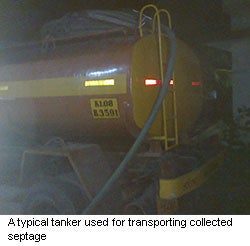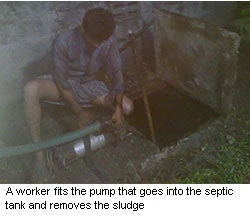 Kerala is a beautiful state in South India, home to about 34 million people, many of whom share my pride as a Keralite. Of all the states in India, Kerala scores the highest on the human development index, has one of the highest literacy rates in India (around 95%), a low Infant Mortality Rate, gender ratio in favor of the female population, stunning landscapes (highlands, mid-lands, low-lands), and a booming tourism industry. It is God’s own country, as the promoters of tourism industry has named it.
Kerala is a beautiful state in South India, home to about 34 million people, many of whom share my pride as a Keralite. Of all the states in India, Kerala scores the highest on the human development index, has one of the highest literacy rates in India (around 95%), a low Infant Mortality Rate, gender ratio in favor of the female population, stunning landscapes (highlands, mid-lands, low-lands), and a booming tourism industry. It is God’s own country, as the promoters of tourism industry has named it.
While India has the highest number of people defecating in the open in the world, the state of Kerala has a large number of households with their own toilets (96% coverage). However, by solving that problem, the communities now have another. With household access to toilets high and most connected to septic tanks, periodic emptying of septic tanks is essential. And, if the septage is not safely disposed of, and is dumped into open streams/rivers, paddy fields and other areas, contamination of drinking water sources is possible.
People don’t want to discuss this “dirty” business, but it’s an issue that must be addressed. On-site sanitation seems to be the only solution since a very small percentage of the state is connected to sewer networks. For most of Kerala, sewer networks are practically difficult because the cities in the state are already densely inhabited and the homestead pattern in villages is typically a continuous spread with very little separation between rural and urban areas.
When the government approached the World Bank to help address this issue, I wanted to see first-hand the current practice. Little did I know that I was signing up for an exciting midnight mission. I contacted some private septic tank cleaners in Kochi (commercial capital of the State and a bustling city), who invited me to come along with them and at 10 p.m. we started our late night assignment. At the first house in an upper-class neighborhood, a well-dressed man came out of the house to quickly show the location of his septic tank, pay the contractor and then immediately retreated back to the house. My guides for the evening, a three-member team (a driver and two workers), said it is common that their customers didn’t want to see the business of emptying fecal matter from their septic tanks. The workers, the typical 20-somethings who usually do this job, also explained to me the work, in spite of its stigma, is highly rewarding. Each worker makes about $20USD a night, about twice as much as most other workers of their age and category. I was pleased to find that the workers appear to be from diverse backgrounds, basically the same as would be found undertaking other types of manual labor.

The open dumping of septage has become a major issue for Kerala and a threat to its progress. While open defecation means fecal matter is spread around in smaller quantities, septage dumping means discharge of highly concentrated pathogens with potential to cause significant health and environmental damages. Local newspapers are frequently reporting on incidences of septage dumped in water bodies and paddy fields and villagers agitating against illegal dumping, even sometimes beating up the workers of the operators, citing the plight of villages where septage brought from cities is contaminating their drinking water sources.
Along with an increase in news coverage, newspapers are also seeing an increase in advertisements for the septic tank cleaning business, which is flourishing. Five years ago you would have seen two or three ads, and now you regularly see around 15 operators advertising their services in the classified column of the newspapers. With business booming and the public discourse growing increasingly heated, regulation and finding solutions are even more important.
Not only is there a public health risk due to the open dumping of septage, but there are also significant economic costs. Kerala has a high morbidity rate and a high incidence of water borne diseases. Costs to families include expenditure on boiling water (a very common practice even in restaurants, where you will be offered boiled water), time lost due to illness and medical expenses, among others.
There is a Public Interest Litigation in the Courts on this issue and the State Government has given an undertaking in the Supreme Court of India that the State will develop proper treatment and disposal facilities for septage management within three years. We are now helping the State Government to develop a strategy to address the issue and is also providing support to the World Bank’s Second Kerala Rural Water Supply and Sanitation Project (Jalanidhi – II) in piloting a regional septage treatment facility in one district. The lessons we are developing have a great deal of potential for application across India; reflecting the high population density of Kerala, the Ministry of Urban Development has shown a strong interest in our work and we are already working with the ministry to extract lessons learnt and develop a national septage management policy.
While I love all of my assignments across India, most of which are in the Northern States where economic and social conditions are often below the national average, it is a source of great satisfaction to me to be able to work on a program which promises to make a material difference to the environment of my home state and to the well-being of fellow Keralites. The time to act is now as otherwise the gains of improved access to sanitation will be negated by the open dumping of septage, not only in Kerala, but across all India.


Join the Conversation